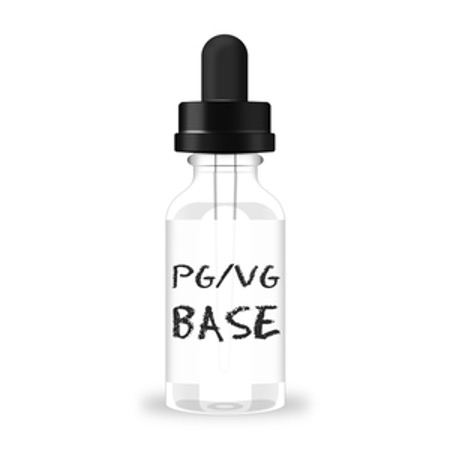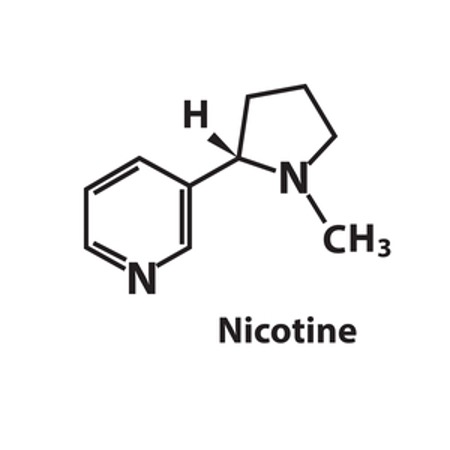Do E-Cigarettes Have Side Effects?
27th Oct 2021

|
It’s natural to feel cautious about what we put in our bodies. From the food and drink we consume to the necessary medication prescriptions signed off by our doctors, people are more health-conscious than ever. Scientific research over many years has made us aware of the dangers smoking presents to the body - but what about vaping? Do e-cigarettes cause the same side effects, something more sinister or are they a better alternative to cigarettes, reducing the number of side effects you get? |
Is Vaping Safe or Bad for You?Inhaling anything into your system could have consequences. Generally, the evidence suggests to date that vaping is significantly better for your health than smoking, both physically and mentally. Because you replace the urgent need to inhale tobacco or carbon monoxide through cigarettes, the health benefits such as easier breathing instantly outweigh any disadvantages when you pick vaping as a safer alternative to smoking cigarettes. Several sources back this up, including the NHS, the British Heart Foundation - who back vaping as an alternative and many more. Short Term Side Effects of VapingNevertheless, short term side effects can occur, depending on factors such as the nicotine strength of an e-liquid. The main short term effects of vaping, although not life-threatening but still occurring, includes:
Dehydration, coughing and a sore throat are very frequent among all vapers but particularly likely with beginners because the potential side effects increase while former smokers get used to a new habit. Most people don’t associate vaping with dehydration, but there is a direct link. Vapour, created by heating e-liquid, contains Propylene Glycol (PG), Vegetable Glycol (VG), or a combination of both. The problem is that both PG and VG are products that naturally make you dehydrated. They absorb water, and thus a by-product of vaping is that your mouth may become dry. If you’re vaping, try to replenish your body with liquids soon after, maximising flavour and avoiding issues such as vaper’s tongue. |
Are There Any Long Term Side Effects of Vaping?The jury is out on the long term effects of vaping because we don’t know yet. It will take years of research and more scientific studies by medical professionals before we fully understand any long term side effects from vaping. There haven’t been any direct links to deaths among e-cigarette users other than the ‘EVALI’ outbreak in the US and the ' popcorn lung theory', relating to the discovery of illegal chemical diacetyl in some e-liquids. That's in contrast to the UK, where the substance is banned, with the theory quickly shut down by PHE as false information. |

|
|
UK agency Public Health England, which is government-funded, leads the way in e-cigarette research with annual studies about the impact of vape devices as a cessation tool. With vaping, e-liquids do not contain carbon monoxide or tobacco, which can enter the lungs when smoking. Cigarette smoke contains more than 7000 chemicals, including several toxic substances and known carcinogens (cancer-causing substances). Studies show significantly fewer compounds in e-liquid vapour than in cigarette smoke, in particular tobacco-specific nitrosamines (TSNAs). There are also significantly lower levels of volatile organic compounds (VOCs) (such as cyanide-releasing acrylonitrile), present in cigarette smoke and found in the lungs of ex-smokers. Therefore, it’s deemed considerably safer for your health to vape, even if you cut it down to the point where you no longer need to vape with nicotine, the side effects are minimal and rarely long-lasting. Other Concerns About Vaping1. AllergiesMost vaping allergies refer to PG allergies, as they are the only type we know of. PG is one of the major ingredients in the majority of e-liquids. |

|
PG allergies are rare. However, there is a large number of people who have a PG sensitivity. PG allergies can be hard to spot as many symptoms are minor and typically stay that way. The most common symptom of PG sensitivity or allergies is a painful, dry or irritated throat when vaping PG e-liquids. You may also experience sinus problems, nausea, headaches, numbness or itching and hives. If you think you may have a vaping allergy, check out our write up of spotting PG allergies, or consult your doctor if you’re concerned about the above symptoms if they persist. |
2. Second-hand Vapour vs Second-Hand SmokeTobacco smoke also lingers in the air for a considerable time, which creates significant health impacts on others, as well as for smokers. Those who are very close to, or who live with smokers are frequently exposed to the dangers of second-hand smoke, which can be very detrimental to their health, even if they don’t smoke themselves. In adults, second-hand smoke exposure can raise your risk of heart disease, lung cancer and strokes. In children, second-hand smoke exposure makes them more prone to ear infections, severe asthma, bronchitis, pneumonia and increases the risk of sudden infant death syndrome (SIDS). There is currently no evidence to suggest that e-cigarette vapour is harmful to others, as it is an aerosol rather than a cloud of smoke, and evaporates very quickly (in around 30 seconds, compared to cigarette smoke which can linger in the air for 45 minutes). |
3. Nicotine Addiction as a Side EffectIf you overdo it with nicotine, you can get dizzy, lightheaded, or even jittery. Make sure you understand nicotine levels in vapour to avoid any such situations. While nicotine on its own is not dangerous, the side effects listed above can be uncomfortable. If you find yourself feeling shaky, unwell or light headed after vaping, consider decreasing the nicotine concentration in your e-liquid to not consume too much nicotine. That’s the beauty of vaping compared to smoking - it’s possible to alter your nicotine levels based on your requirements. |

|
4. Bad Oral HygieneAgain, the scientific evidence to back up this claim is lacking. A lot of the damage done to your oral health when smoking is caused by tar build-up, nicotine consumption and the increased chance of bacteria forming in the mouth. Because vaping protects against these issues due to not containing nicotine and not having any tobacco whatsoever, most vapers report healthier gums when vaping than smoking. You can read more about the damage smoking does to your teeth and why vaping may improve your oral health here. 5. Weight LossLast on the list is potential weight loss and gain, which is an increasingly searched topic by smokers and vapers hoping to keep in good physical shape. Nicotine is an appetite suppressant and addictive stimulant, meaning smokers are less likely to crave food as often because they’re consistently reaching for a cigarette. Cigarettes may keep the weight gain down but at a dangerous cost. Therefore, many turn to vaping as an alternative, hoping it creates the same effect without craving food and reducing the side effects on the body. But does vaping help you gain or lose weight? Here are a couple of considerations:
ConclusionAs you can see, there are several considerations to make before picking up a vape. Typically, any of the side effects listed above are mild at best and not long-term. It all depends on how much you vape and finding the right level for you, gradually dropping any nicotine in your e-liquid to zero and then removing vaping from your life. Between a cigarette and a vape device, the side effects of vaping will be much less dangerous, hence why so many organisations back it as an alternative to smoking. Cigarettes have thousands of toxins inside and many of the side effects listed above are related to nicotine. While you can’t remove nicotine at all from cigarettes, it’s possible to have greater control over what is in your e-liquid and adjust accordingly to reduce any side effects. |
